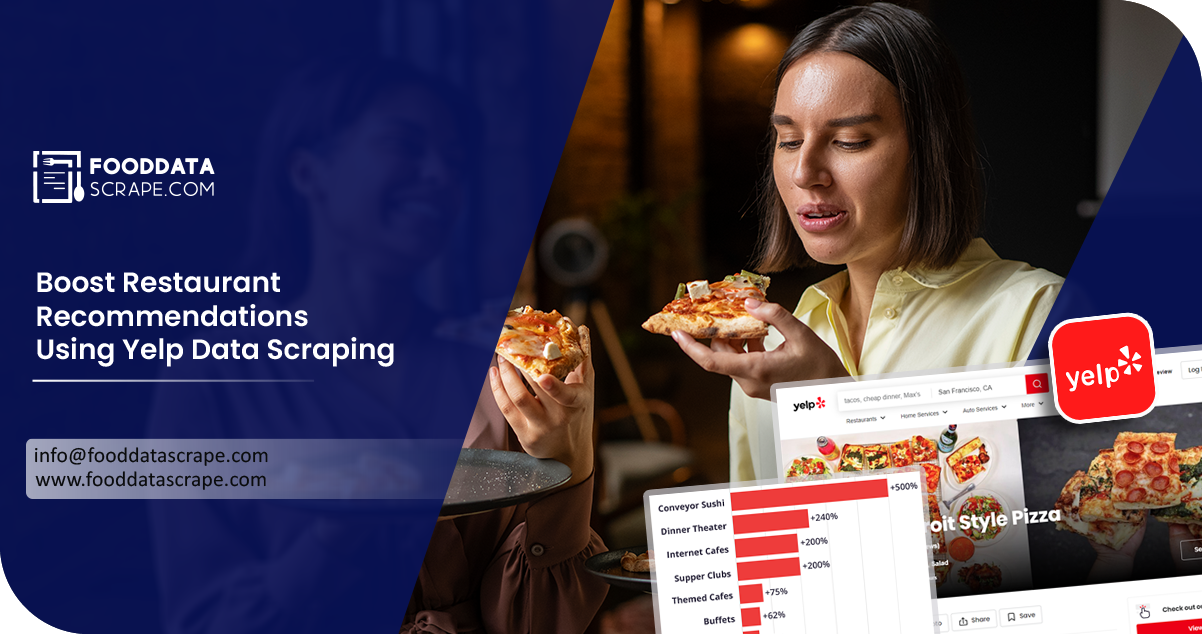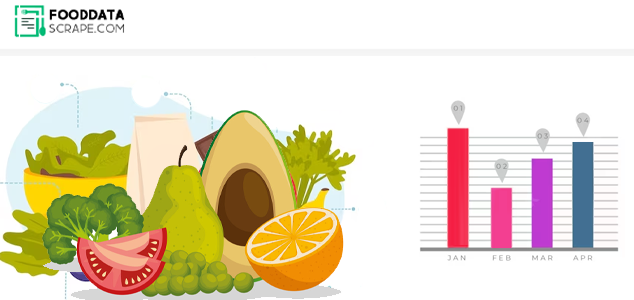The Client
Our client ran a popular online food delivery platform and wanted to improve its restaurant recommendation system by leveraging Yelp data. They aimed to gather valuable insights from Yelp reviews and ratings to enhance their platform's recommendations and provide a better user experience to their customers.
Key Challenges
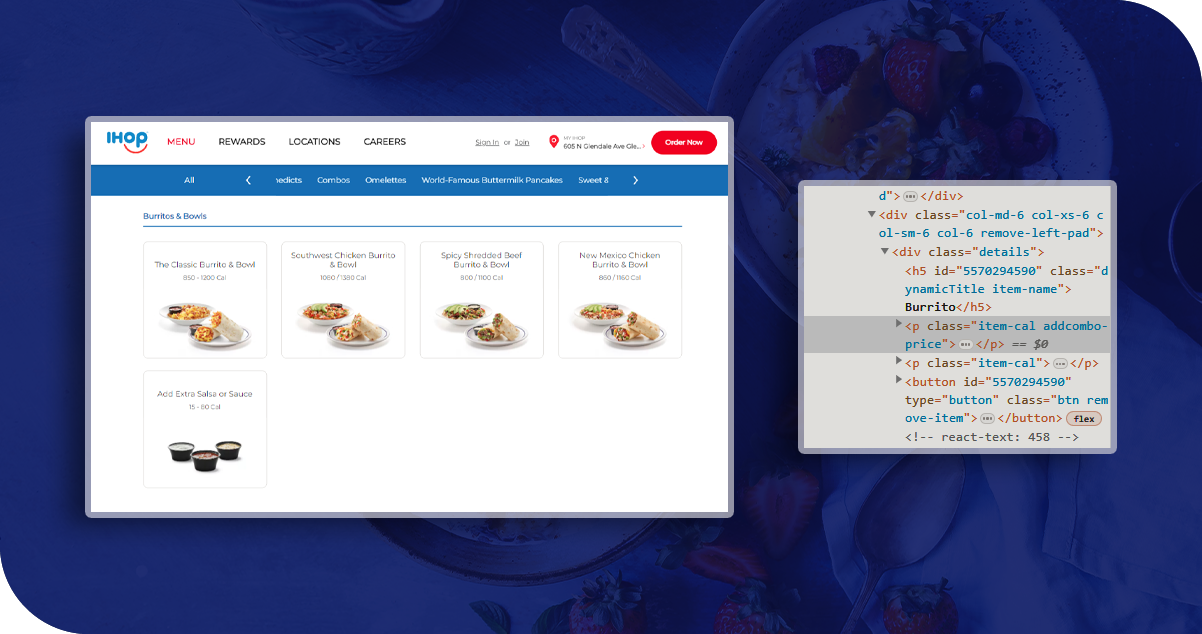
While scraping Yelp data, we encountered various anti-scraping challenges, including Captchas, IP blocking, and rate limiting. Hence, it was essential to implement techniques to overcome these measures.
As Yelp's website is dynamic, hence, it becomes essential to handle the dynamically changing HTML content while restaurant menu data scraping.
Efficiently navigating through pagination and handling large volumes of data was a big challenge, requiring strategies like implementing pagination algorithms or using efficient data storage solutions.
The essential part for web scraping food delivery data was to ensure that the scraping process adhered to the terms of service, respected privacy regulations, and avoided excessive or harmful scraping practices.
Key Solutions
To scrape Yelp Business data, we thoroughly examine the website structure, including the HTML, CSS, and JavaScript code. Identify the relevant data elements and their organization on the page. This understanding helped us design an effective scraping strategy.
We then developed a custom web scraping solution to extract the required data from Yelp's website.
We leveraged web scraping frameworks and libraries such as BeautifulSoup and Selenium to automate the data extraction.
Next, we developed techniques to bypass anti-scraping measures like captchas and IP blocking.
Regularly monitor the target website for any structural or content changes. Update the scraping code to adapt to these changes and maintain effectiveness.
Methodologies Used
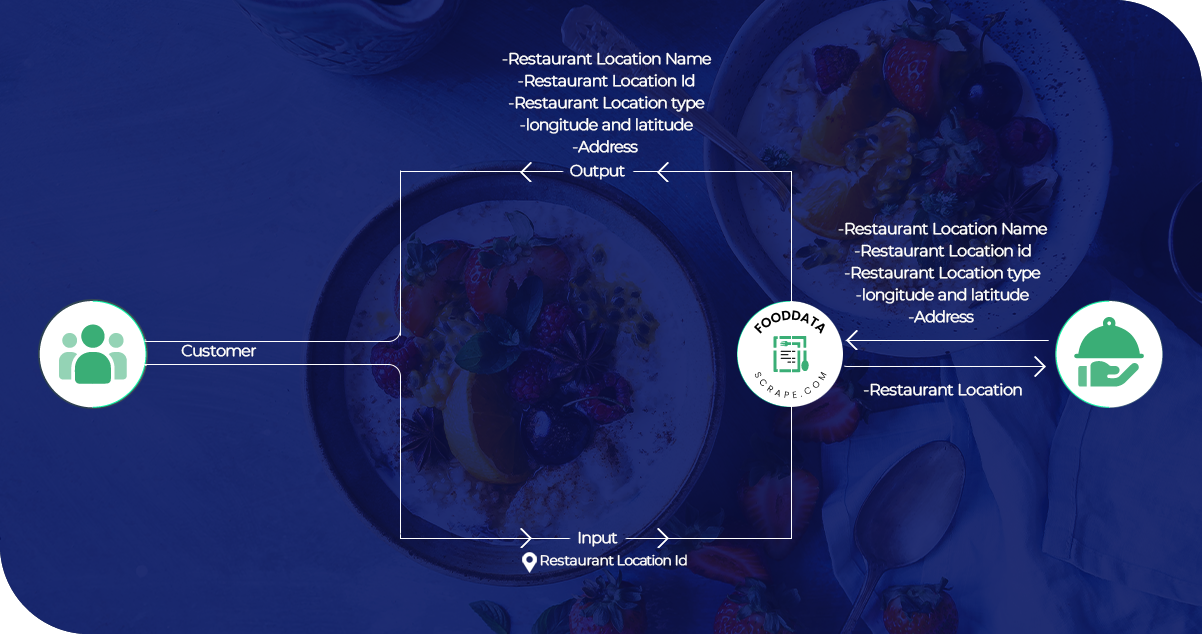
First, we determined the specific information to scrape Yelp restaurant data, such as business details, reviews, ratings, or other relevant data.
Then, we choose an appropriate scraping method based on the client's requirements and technical expertise.
We set up the development environment with the necessary tools and libraries.
Using browser developer tools, we inspected Yelp's website structure and understood the HTML structure, CSS selectors, and JavaScript interactions to identify the elements and data to scrape.
Then, we write the scraping code based on the selected method and extract the desired data using appropriate selectors.
Our Yelp data scraping services implemented techniques to handle anti-scraping measures like captchas, rate limits, and IP blocking.
Then, we cleaned and processed the scraped data to ensure its quality and relevance, including removing any unnecessary characters, formatting the data appropriately, and applying any necessary filtering or transformation.
The last step was determining the storage format for the scraped data, such as CSV, JSON, or a database. Write code to store the extracted data in the chosen format.
Advantages of Collecting Data Using Food Data Scrape
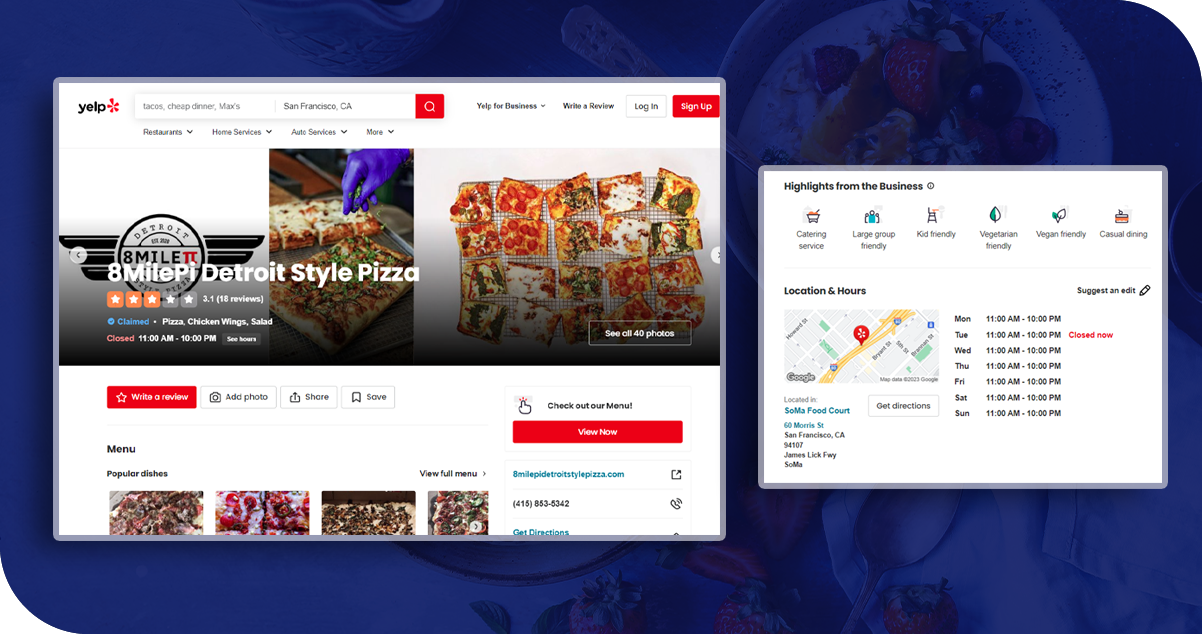
Domain Knowledge and Customization: We specialize in specific industries or domains and have a deep understanding of the unique challenges, data structures, and sources within those domains.
Legal and Ethical Compliance: Data scraping can be a legal and ethical minefield, with potential risks related to data ownership, privacy regulations, and terms of service violations. Food Data Scrape understands legal requirements and can ensure compliance with relevant laws and regulations.
Data Quality Assurance: The company prioritizes data quality and accuracy. We have robust mechanisms to ensure the extracted data is clean, reliable, and highly quality and employ data validation processes, implement quality checks, etc.
Maintenance and Updates: We keep track of changes and provide ongoing maintenance and updates to scraping processes. We have dedicated resources to monitor and adapt to any modifications, ensuring the continuity of data extraction operations.
Speed and Efficiency: Our advanced infrastructure and optimized scraping techniques enable us to scrape data faster without compromising quality or speed.
Support and Customer Service: We offer dedicated support and customer service. Understanding the importance of responsive communication and timely assistance, we can support you throughout the scraping project.
Final Outcome: Our client was delighted to receive valuable data after scraping. This data played a crucial role in boosting restaurant recommendations by providing insights into customer preferences, reviews, ratings, and other relevant information.






















































































